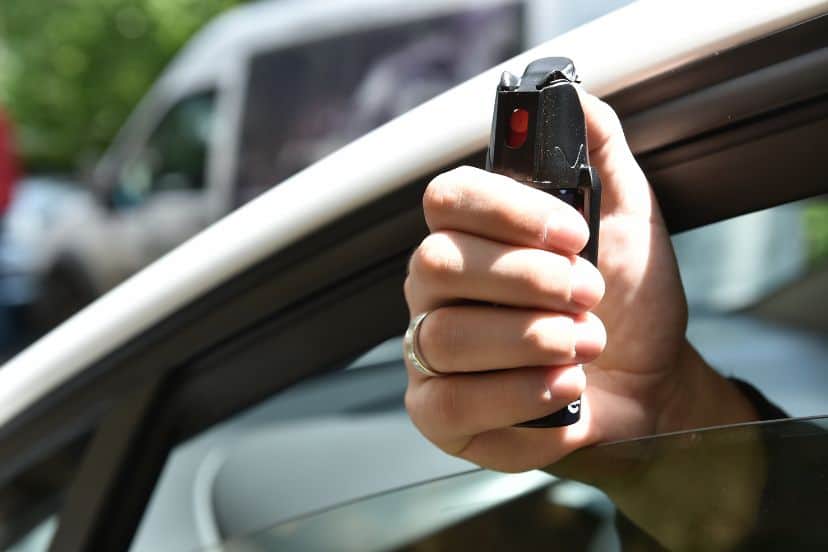Introduction
As a self-defense enthusiast and advisor, I understand the importance of personal safety and being prepared for potential threats. In today’s world, where personal security is a concern for many, knowing what self-defense weapons are legal can be vital. In this article, I will provide you with a comprehensive guide on self-defense weapons, their legality, and suggestions to help you make informed decisions regarding your personal safety.
Understanding Self-Defense Weapons
Self-defense weapons are tools or devices designed to protect individuals from harm in threatening situations. These weapons vary in form and function, ranging from non-lethal options to lethal ones. It’s essential to choose a self-defense weapon that suits your needs, taking into consideration factors such as effectiveness, ease of use, and legal restrictions.
Legal Considerations for Self-Defense Weapons
Before diving into specific self-defense weapons, it’s crucial to understand the legal framework surrounding their possession and use. Laws pertaining to self-defense weapons can vary significantly depending on your country, state, or even city. Familiarize yourself with the regulations in your jurisdiction to ensure compliance and avoid unnecessary legal complications.
Non-Lethal Self-Defense Weapons
Non-lethal self-defense weapons are popular among individuals seeking personal protection without the intention to cause fatal harm. These weapons are designed to incapacitate or deter an assailant temporarily, providing an opportunity to escape or seek help. Some commonly used non-lethal self-defense weapons include pepper spray, stun guns, personal alarms, tactical pens, and keychain weapons.

Pepper Spray: A Popular Choice
Pepper spray is a widely recognized self-defense tool that utilizes oleoresin capsicum (OC) to temporarily disable an attacker. It causes severe irritation, burning sensation, and temporary blindness, giving the user a chance to escape. Pepper spray comes in various sizes, including small canisters that can be easily carried in a pocket or purse. However, be aware of the legal restrictions on pepper spray in certain areas, as its use might be limited or regulated.
Stun Guns and Tasers: Effective and Safe?
Stun guns and tasers are electroshock weapons that deliver a high-voltage electric shock to temporarily incapacitate an assailant. These devices are effective at immobilizing attackers, but their use should be approached with caution. Research local laws regarding the possession and use of stun guns and tasers, as they might be subject to restrictions in some areas.
Personal Alarms: Alerting Others to Danger
Personal alarms are small, portable devices that emit a loud, attention-grabbing sound when activated. They serve as an effective deterrent by drawing attention to a potential threat and alerting others nearby. Personal alarms are easy to use and can be carried discreetly. They are particularly useful in situations where attracting attention or assistance is crucial.
Tactical Pens: A Multi-Purpose Tool
Tactical pens are writing instruments designed with additional features that enhance their self-defense capabilities. These pens typically have a sturdy construction, making them suitable for striking an assailant in self-defense situations. Additionally, some tactical pens feature other useful tools like glass breakers or built-in flashlights, making them versatile and practical for everyday carry.
Keychain Weapons: Portable and Discreet
Keychain weapons are compact self-defense tools that can be attached to your keychain for easy access. They often incorporate elements like sharp edges, pointed ends, or hidden blades, which can be used to fend off attackers in close-quarters encounters. Keychain weapons offer convenience and discretion, but it’s crucial to check the legality of such items in your area, as they may be restricted.
Legal Restrictions on Self-Defense Weapons
While self-defense is a fundamental right, the possession and use of certain self-defense weapons can be subject to legal restrictions. It is important to research and understand the laws specific to your location, as they can vary significantly. Always abide by the laws and regulations governing self-defense weapons to avoid legal complications.
Researching Local Laws
To ensure compliance with the legal framework surrounding self-defense weapons, it is essential to research the specific laws applicable to your jurisdiction. Consult local law enforcement agencies, review official government websites, or seek legal advice to obtain accurate and up-to-date information. By understanding the regulations, you can make informed decisions about the self-defense weapons that are legal and appropriate for your personal safety needs.
Conclusion
Being aware of the legal aspects concerning self-defense weapons is paramount when considering personal safety. Non-lethal options like pepper spray, stun guns, personal alarms, tactical pens, and keychain weapons offer effective means of protection. However, it is vital to research and understand the legal restrictions in your area to ensure compliance. By equipping yourself with knowledge and selecting the appropriate self-defense weapon, you can enhance your personal security and peace of mind.
FAQ
Q1: Are self-defense weapons legal everywhere?
A1: Self-defense weapon legality varies depending on your location. Laws governing self-defense weapons differ from country to country, and even within different states or cities. It is crucial to research and understand the specific laws applicable to your jurisdiction.
Q2: Can I carry pepper spray on an airplane?
A2: Pepper spray is generally prohibited on airplanes, both in carry-on and checked baggage. Transporting self-defense weapons, including pepper spray, is subject to strict regulations imposed by aviation authorities.
Q3: Are there age restrictions for purchasing self-defense weapons?
A3: Age restrictions for purchasing self-defense weapons can vary. Some jurisdictions impose age limits for specific self-defense tools, such as stun guns or pepper spray. Check your local laws to determine the age requirements for obtaining self-defense weapons.
Q4: Can I use self-defense weapons in self-defense situations?
A4: The legality of using self-defense weapons in specific situations can depend on the circumstances and the laws of your jurisdiction. However, the primary purpose of self-defense weapons is to provide a means to protect oneself in threatening situations.
Q5: Can I use self-defense weapons against animals?
A5: Self-defense weapons can be used against animals if necessary for personal safety. However, it is important to prioritize non-lethal options when dealing with animals and consider local regulations regarding the use of self-defense weapons in such situations.


